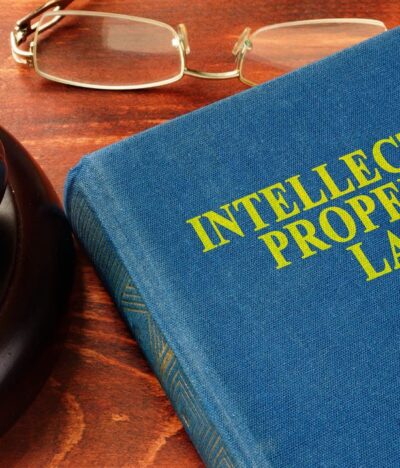Every adult in Southern California should have a customized estate plan in place. Unfortunately, too many people lack the core estate planning documents that they need to protect themselves and their family. A few years back, the AARP reported that 60% of U.S. adults lack basic estate planning documents. Unsurprisingly, younger generations were even less likely to have an estate plan in place. In 2017, only 22% of Millennials had a will.
However, a recent report finds that things are changing fast. Not only are Millennials getting older, but they are living through another serious crisis. The COVID-19 pandemic lays bare the inherent uncertainties and risks of life. There has been a surge in estate planning among Millennials. Here, our Santa Monica estate planning lawyer discusses some of the key trends in estate planning for Millennials and highlights the key components that you should consider as part of your estate plan.
A Surge in Estate Planning Among Millennials
As traditionally defined, the Millennial generation covers everyone in the U.S. born between 1981 and 1996. Of course, this means that Millennials are no longer a particularly “young” generation. The oldest Millennials are now entering their 40’s. As people age, they are more likely to put together an estate plan—but there has been a particularly sharp rise in estate planning among Millennials due to the COVID-19 pandemic.
According to a report by The Wall Street Journal, the number of Millennials who have a will has increased by more than 50% since 2019. In a survey of Millennials who created their first estate plan in 2020 or 2021, approximately one-third cited the COVID-19 pandemic as the primary factor.
New Estate Planning Trends are Developing Among Millenials
Notably, Millennials are bringing some changes to the estate planning world. The needs of every generation are different. As such, it is not surprising that the average estate plan of a Millennial is not quite the same as the average estate plan of someone from Generation X or the Baby Boomer generation. As cited by Cision PR Newswire, some of the Millennial estate planning trend include:
-
A Higher Priority on Pets: More than three quarters of Millennial pet owners surveyed named a guardian for their pet as part of their estate plan. Some Millennials also set up trusts for the benefit of a pet.
-
Charity and Organ Donation: Compared to prior generations, the survey also found that Millennials were more likely to include charitable organizations as beneficiaries and more likely to include specific provision regarding organ donation.
-
End-of-Life Celebrations: Many Millennials also appear to prefer an end-of-life celebration as opposed to a more traditional funeral and burial. An estate plan allows a person to retain more control over these arrangements.
Take Action: Key Components of a Comprehensive Estate Plan
While there are certainly some new trends developing among Millennials, the core elements of an estate plan remain similar. Ultimately, an estate plan is about putting a legal structure in place to provide the maximum amount of protection and support to you and your loved ones. A well constructed estate plan should generally include some (or all) of the following:
-
Will: A last will and testament is still the central estate planning document. You are never too young to write a will. You could use your will to name an executor of your estate, express your financial wishes, and leave property to your heirs. A will can be customized to meet your needs.
-
Trust(s): Although they are not part of every estate plan, trusts can offer significant financial advantages in a number of different circumstances. Trusts are often used to carry out a specific purpose. If you have any questions about setting up a trust, an experienced Santa Monica, CA estate planning lawyer can help.
-
Up-to-Date Beneficiary Designations: You should always have up-to-date beneficiary designations as part of your estate plan. By doing so, you can help to ensure that certain assets will avoid probate and pass on to your desired beneficiaries. For example, you could name a spouse, life partner, or child as the beneficiary on your 401(k) or IRA.
-
Life Insurance: Do you have people who depend on you? Whether you have a spouse, significant other, child, elderly parent, or vulnerable loved one who depends on your contributions, it is crucial that your estate plan provides them with adequate protection. Life insurance may be the best option.
-
Powers of Attorney: Estate planning is about a lot more than deciding who gets to inherit what. An estate plan should put the structure in place to protect you if you are temporarily or permanently unable to manage your own day-to-day affairs. One of the most effective tools for doing so is a power of attorney. You can provide a trusted loved one with the legal authority required to act on your behalf.
-
Health Care Directives: If you have specific desires related to end-of-life care (or medical care in general), it is generally best to include legally-binding health care directives as part of your overall estate plan. By doing so, you can rest confident knowing that your wishes will be respected even if you are not in a position to express them.
-
HIPAA Authorization: The Health Insurance Portability and Accountability Act (HIPAA) is a federal law that provides strong protection for patient privacy. A challenge the law creates is that it is sometimes difficult for loved ones to get information from doctors and other medical providers. Your estate plan can address this potential issue through a HIPAA authorization.
Contact Our Santa Monica, CA Estate Planning Attorney Today
At KLEIN.LAW, our California estate planning attorney provides cost effective, comprehensive guidance and support to clients, including young families. It is never too early (or too late) to set up a comprehensive estate planning. We are here to help. Give us a call at (310) 295-2261 or send us a direct message to schedule your strictly confidential, no obligation intimate consultation. From our Santa Monica law office, we provide estate planning representation throughout the wider area, including in Los Angeles, Torrance, Beverly Hills, Gardena, Burbank, and Long Beach.






